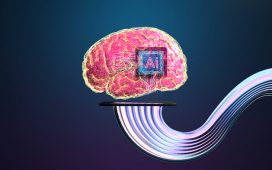Doctors, watch out! Artificial intelligence aka AI may be coming for your white coats.
A new study published by JAMA Internal Medicine found that ChatGPT gave better answers than human doctors four out of five times. Gizmodo reports after JAMA examined questions from patients, they found 79% of cases preferred responses from AI’s responses. Not only were their answers more thorough, a panel of medical professionals found AI to be more empathetic as well.
Experts say this could cause “major implications” in healthcare but there are spaces within the industry where this could be helpful for medical advice, especially after COVID days. “Doctor’s inboxes are filled to the brim after this transition to virtual care because of COVID-19,” John W. Ayers, PhD, MA and Vice Chief of Innovation at UC San Diego School of Medicine Division of Infectious Diseases and Global Public Health said. “Patient emails go unanswered or get poor responses, and providers get burnout and leave their jobs. With that in mind, I thought ‘How can I help in this scenario?’”
Artificial intelligence is slowly by surely making a name for itself in the medical industry. According to Forbes, numerous articles have stated that “medicine stands out as one field in which there is tremendous potential.” The New England Journal of Medicine said AI is playing a high role in health insurance coverage, assisting caregivers in making claims and payors in adjudicating them. Studies have also shown that reports use AI to interpret images in radiographs and histology.
Ayers and other experts claim medical professionals should be aware as AI is progressing at an alarming rate. But there are more studies that need to be done before human doctors can be completely counted out. “The results are fascinating, if not all that surprising, and will certainly spur further much-needed research,” Steven Lin, MD, said. He said the results can also be skewed due to the methodology for judging quality.
The study is still “encouraging” and highlights opportunity that chatbots pose for public health.











